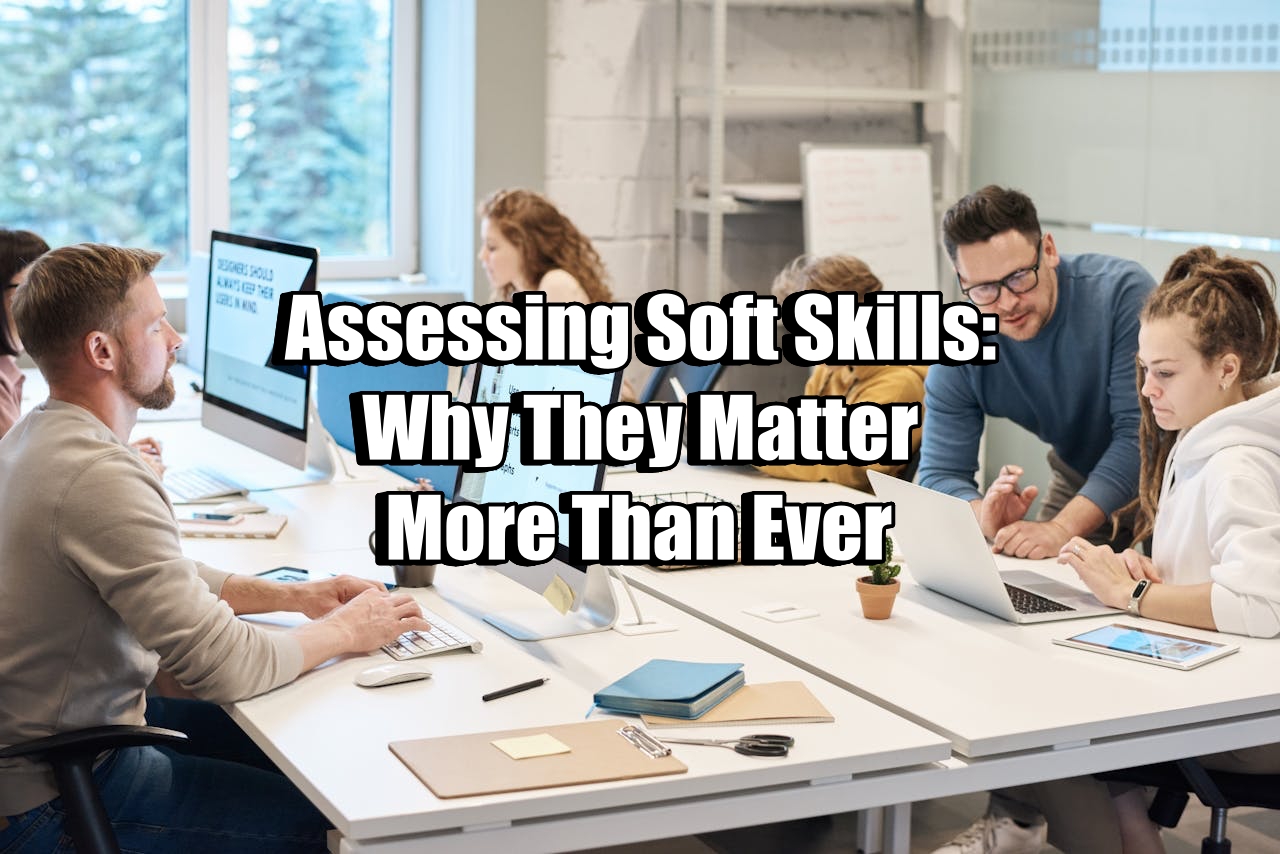Skip to content
Assessing Soft Skills: Why They Matter More Than Ever
In today’s rapidly evolving world of work, the spotlight is shifting from just hard skills to soft skills — and for good reason. While technical know-how can get your foot in the door, it’s your ability to communicate, collaborate, adapt, and lead that determines long-term success. These human-centric capabilities are no longer “nice to have”; they’re mission-critical.
The New Competitive Edge
Technology is automating tasks once thought untouchable. AI and machine learning can write code, analyze data, and even mimic creativity. But what they can’t replicate — at least not effectively — is emotional intelligence, empathy, critical thinking, and ethical judgment. These uniquely human traits are what drive innovation, build trust, and create resilient organizations.
Employers today are realizing that success depends just as much on how people work together as it does on what they know. That’s why assessing soft skills has become an essential part of hiring, team development, and leadership planning.
What Are Soft Skills?
Soft skills encompass interpersonal and intrapersonal abilities like:
-
Communication: Clear, thoughtful, and active listening skills
-
Teamwork & Collaboration: Working well with others toward shared goals
-
Emotional Intelligence (EQ): Recognizing, understanding, and managing emotions
-
Adaptability: Responding to change with resilience
-
Problem Solving & Critical Thinking: Making thoughtful decisions in complex situations
-
Leadership: Inspiring, influencing, and guiding others
Why Soft Skills Matter More Than Ever
-
Hybrid Work Requires Emotional Intelligence
Remote and hybrid work environments demand clearer communication, trust-building, and self-management. EQ is vital in bridging physical distance with emotional connection.
-
Leadership is Being Redefined
Today’s leaders are less about command-and-control and more about coaching and collaboration. Leaders who can build culture, encourage innovation, and manage conflict are in high demand.
-
Customer Experience is a Human Experience
No matter the industry, soft skills play a crucial role in customer satisfaction. The ability to empathize, listen, and resolve issues is key to brand loyalty.
-
Reskilling and Upskilling Require Learning Agility
As industries shift, the ability to learn quickly and collaborate with new teams matters more than static qualifications. Soft skills enable lifelong learning.
-
Diversity, Equity, and Inclusion Need More Than Policy
Inclusive cultures thrive when people show empathy, cultural intelligence, and the willingness to challenge biases. These are all soft skills rooted in self-awareness and openness.
How to Assess Soft Skills Effectively
Assessing soft skills isn’t easy — but it is possible:
-
Behavioral Interviews: Ask candidates to describe real situations where they had to resolve conflict or lead change.
-
Situational Judgement Tests (SJTs): Present hypothetical workplace scenarios to see how candidates respond.
-
Peer Reviews & 360 Feedback: Gather insights from team members and colleagues for a rounded view.
-
Work Simulations: Observe how someone communicates and collaborates under pressure.
Final Thoughts
Soft skills aren’t soft — they’re essential. As the world of work continues to evolve, those who master the art of being human at work will be the ones who thrive. Organizations that prioritize the assessment and development of these skills will build stronger teams, better leaders, and more resilient futures.

No responses yet